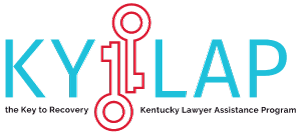CLE and Trainings
We’re committed to getting you useful continuing education resources for your well-being. From time to time we’ll put links to applicable CLEs here.
Click the button below to view all of our resources
Are you or someone you know having thoughts of suicide?
Call the Suicide Prevention Lifeline
We can all help prevent suicide. The Lifeline provides 24/7, free and confidential support for people in distress, prevention and crisis resources for you or your loved ones, and best practices for professionals. Click here to get more information.
Know the Risk Factors
Risk factors are characteristics that make it more likely that someone will consider, attempt, or die by suicide. They can’t cause or predict a suicide attempt, but they’re important to be aware of.
- Mental disorders, particularly mood disorders, schizophrenia, anxiety disorders, and certain personality disorders
- Alcohol and other substance use disorders
- Hopelessness
- Impulsive and/or aggressive tendencies
- History of trauma or abuse
- Major physical illnesses
- Previous suicide attempt(s)
- Family history of suicide
- Job or financial loss
- Loss of relationship(s)
- Easy access to lethal mean
- Local clusters of suicide
- Lack of social support and sense of isolation
- Stigma associated with asking for help
- Lack of healthcare, especially mental health and substance abuse treatment
- Cultural and religious beliefs, such as the belief that suicide is a noble resolution of a personal dilemma
- Exposure to others who have died by suicide (in real life or via the media and Internet)
Know the Warning Signs
Some warning signs may help you determine if a loved one is at risk for suicide, especially if the behavior is new, has increased, or seems related to a painful event, loss, or change. If you or someone you know exhibits any of these, seek help by calling the Lifeline.
- Talking about wanting to die or to kill themselves
- Looking for a way to kill themselves, like searching online or buying a gun
- Talking about feeling hopeless or having no reason to live
- Talking about feeling trapped or in unbearable pain
- Talking about being a burden to others
- Increasing the use of alcohol or drugs
- Acting anxious or agitated; behaving recklessly
- Sleeping too little or too much
- Withdrawing or isolating themselves
- Showing rage or talking about seeking revenge
- Extreme mood swings
Suicide
Substance Use
Mental Health
Suicide
CALL THE SUICIDE PREVENTION LIFELINE if you’re thinking about suicide, are worried about a friend or loved one, or would like emotional support. The Suicide Lifeline network is available 24/7 across the United States. Call 988
Substance Use
Addiction is a complex disease affecting the functioning of the brain and body. Studies suggest people diagnosed with mood or anxiety disorders are about twice as likely as the general population to also suffer from a substance use disorder. Help is available…
Mental Health
Mental health is our emotional, psychological and social well-being that affects how we think, feel and act. Mental health determines how we handle stress, relate to others and make choices.As a lawyer, you may develop mental health problems due to the demanding nature of the profession and the long hours you work. You do not have to navigate these issues alone. Help is available…
Kentucky Lawyer Assistance Program
Kentucky Supreme Court Rules 3.900 through 3.995 establish and implement the Kentucky Lawyer Assistance Program (KYLAP). KYLAP is a broad-brush program involving assistance for impairment that may result from addiction to intoxication or drugs, chemical dependency, substance abuse, mental disease, mental disorder or defect, psychological or emotional illness that impairs, or may foreseeably impair, a person’s ability to practice law or serve on the bench. Services are available for law students, lawyers and judges.
The mission and purpose of KYLAP is to address impairment or potential impairment issues within the Kentucky legal community and to offer confidential assistance to those who are affected in a manner that serves to help insure a continuing high standard of professional competence.
Strict confidentiality is assured by SCR 3.990.
Contact us 24 hours a day at (502) 226-9373 to get help for any Kentucky lawyer in need.
Pursuant to Supreme Court Rule 3.990, all communication with KYLAP is confidential.
National Suicide Prevention Lifeline:
988
Get in Touch. Get Involved.
The KYLAP Foundation needs your support to enhance the services we can provide to lawyers in need.
Need Help Now?
Suicide help:
Call 988
or text 741741
More help…
Click here for help with:
Alcohol and Substance Abuse Disorder
Depression
Stress and Burnout
Compulsive Gambling
Eating Disorders
Who We Help
KYLAP Foundation
The KYLAP Foundation needs your support to enhance the services we can provide to lawyers in need. Click here to learn more.










